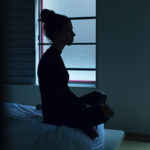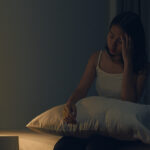What is Sleep Onset Insomnia?
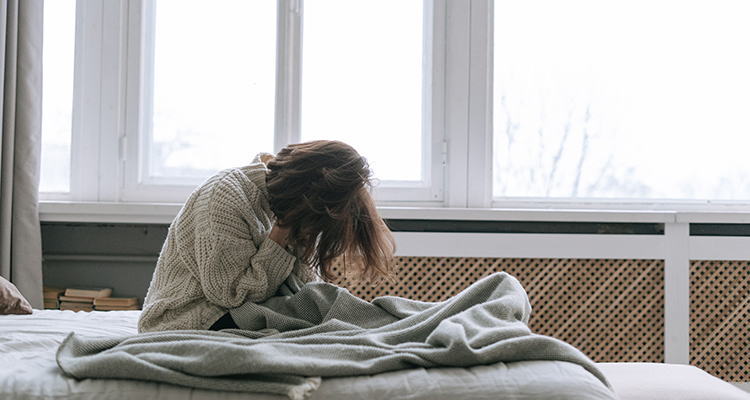
The American Psychiatric Association (APA) cites insomnia as one of the most common sleep disorders. Insomnia is characterized as an inability to fall and stay asleep at night. It also may involve constant tossing-and-turning and/or frequent wake-ups at night.
Insomnia can be acute (happening sporadically, one time, or a couple of times and/or lasting for a short time) or prolonged or chronic (lingering for a long time, reoccurring frequently, or persisting indefinitely). Prolonged or chronic insomnia can wreak havoc on your mental and physical health, causing a host of ailments. The good news is insomnia is treatable.
And, although studies indicate that approximately 25% (1-in-4) of Americans struggle with some form of insomnia, but researchers also suggest that almost 75% of these individuals eventually recover from it and are able to return “normal” sleep patterns.
Therefore, most individuals do not suffer from chronic insomnia forever. But, for the ones who do, there are ways to get the sleep they need to be their “best selves” the next day. Thankfully, for many insomniacs, lifestyle changes, therapy, medications, and natural sleep aids (i.e., online sleep programs, melatonin, etc.) appear to do the trick!
Content
What is Insomnia?
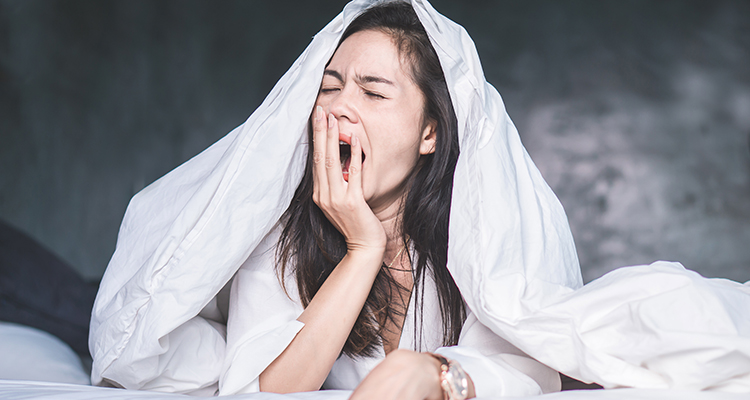
Have you ever been unable to fall asleep, regardless of how much you wanted to?
Being unable to sleep can be torture, especially if all you can do is stare at the ceiling and wish you were asleep. What’s even worse is being up all night only to finally drift-off to sleep an hour or two before its time to get up for the day. Part of the agony is knowing that you’ll most likely feel terrible in the morning. In other words, there is a good chance you’ll feel exhausted, irritable, foggy or confused, and extremely tired – all the ingredients of an unproductive day.
Insomnia is defined as being unable to fall and stay asleep, sleeping poorly at night, constantly tossing-and-turning in bed, and/or waking up several times during the night. It can be a symptom, side-effect, or a disorder.
Acute insomnia typically only lasts a few days and can disappear for days, weeks, months, years, or in some cases, forever. While chronic insomnia typically occurs more than 3 nights, per week, for more than 30 days.
Studies indicate that women are more likely than men to experience insomnia. And, shift workers are more likely to experience it due to circadian rhythm disruptions and inconsistent sleep schedules. People with low incomes are more likely to struggle with insomnia more than people with higher incomes and people with a history of depression are more likely to grapple with sleeplessness, than those without a history of depression. Lastly, people, who have a sedentary lifestyle, are more likely to experience insomnia, than those, who are fairly active.
Are There Different Types of Insomnia?
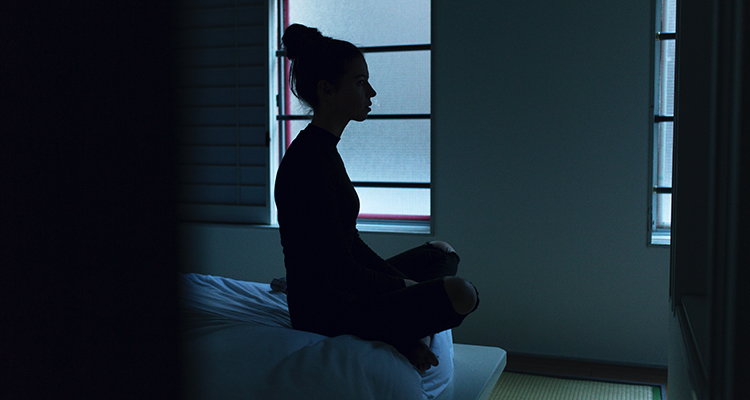
Yes, in fact, there are several types of insomnia.
Each type of insomnia is defined by how long it lasts (acute or chronic), how it impacts your sleep quality, and its origin.
Acute insomnia
Acute insomnia is considered temporary or short-term insomnia. This type of insomnia tends to occur sporadically and last a few days or weeks. It is the most common type of insomnia. Acute insomnia typically occurs after a stressful event, such as the loss of a friend, loved one, pet, or job. It can also occur during exciting times, such as an impending wedding, moving to a new city, town, or state, giving birth, or starting a new job.
Environmental factors (i.e. sleeping in a new bed or environment, allergies, changes in barometric pressure or seasonal changes, being immersed in a smoky or polluted environment, loud noises, funny smells, physical or emotional pain, illness, restlessness, medication side-effects, jet lag, and/or temperature fluctuations can also trigger acute insomnia.
Chronic insomnia
Chronic insomnia involves being unable to sleep for at least 3 days out of the week for at least 30 days. There are two forms of chronic insomnia – primary and secondary. Primary chronic insomnia, also referred to as idiopathic insomnia, has an undetermined cause.
Secondary chronic insomnia, also referred to as comorbid insomnia, is the most common type of chronic insomnia. Secondary chronic insomnia stems from a chronic condition, such as lupus, rheumatoid arthritis, diabetes, asthma, high blood pressure, or Parkinson’s disease.
Other causes include: hyperthyroidism, obstructive sleep conditions and sleep apnea, depression, anxiety, ADHD medications, chemotherapy drugs, antidepressants, beta blockers, caffeine, alcohol, nicotine, illegal substances, jet lag, 3rd or fluctuating shift work schedules, and/or napping for too long.
Sleep onset insomnia
Sleep onset insomnia involves an inability to fall asleep. This type of insomnia may be temporary (acute) or prolonged (chronic). The most common causes of sleep onset insomnia are stress, anxiety, and depression.
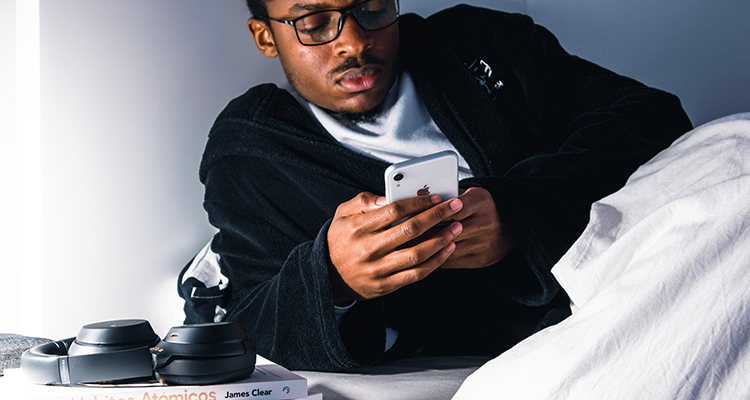
Maintenance insomnia
Maintenance insomnia involves an inability to stay asleep all night long. It can also involve waking up too early and/or having a hard time drifting back to sleep once awakened in the middle of the night. When you suffer from maintenance insomnia, you are unable to sleep because your mind is consumed with worry about why you can’t fall back to sleep and the fear that you’re not going to get enough sleep to be productive the next day.
Maintenance insomnia generally stems from mental and physical conditions, such as anxiety, depression, periodic limb movement disorder, respiratory conditions, sleep apnea, gastroesophageal reflux disease (GERDS), asthma, or restless leg syndrome.
Behavioral insomnia of childhood (BIC)Approximately 25% of children struggle with behavioral insomnia of childhood (BIC). There are three types of BIC: sleep onset, limit-setting, and combined type
- BIC sleep onset is linked to a negative perception or association with sleep, such as learning to fall asleep while sucking on a pacifier, being nursed or rocked, or falling asleep with the television on.
- BIC limit-setting involves a child, who refuses to go to bed and repeatedly tries to delay bedtime by asking for extra potty breaks, hugs and kisses, juice and snacks, a story, etc.
- BIC combined type is a combination of sleep onset and limit-setting BICs. The combined type occurs when a child forms a negative association with sleep and refuses to go to bed because his or her parents or caretakers have not set firm limits with him or her.
What is Sleep Onset Insomnia?
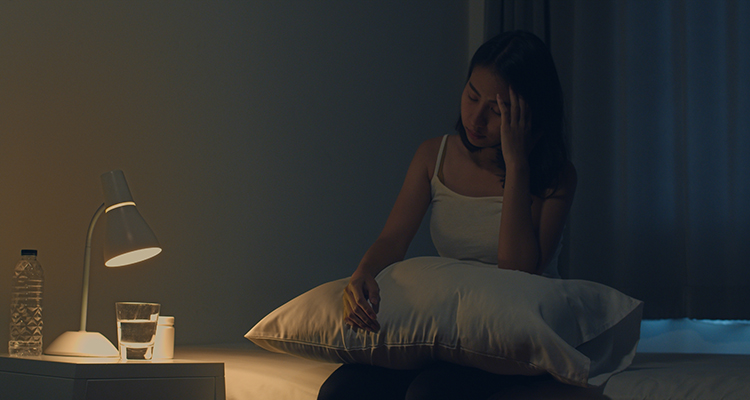
When you have sleep onset insomnia, you are unable to fall asleep at naptime or bedtime. Naptimes and bedtimes can vary, but whenever that is for you, you struggle to fall asleep. This type of insomnia may also consist of constant tossing-and-turning only to remain awake afterwards.
It is common for people with sleep onset insomnia to remain awake even after trying for 20 or 30 minutes to fall asleep. Because people with this type of insomnia have a reduced sleep time, they often feel groggy, irritable, moody, foggy, confused, and extremely tired the next day. Sleep onset insomnia can be acute or chronic.
What Causes Sleep Onset Insomnia?
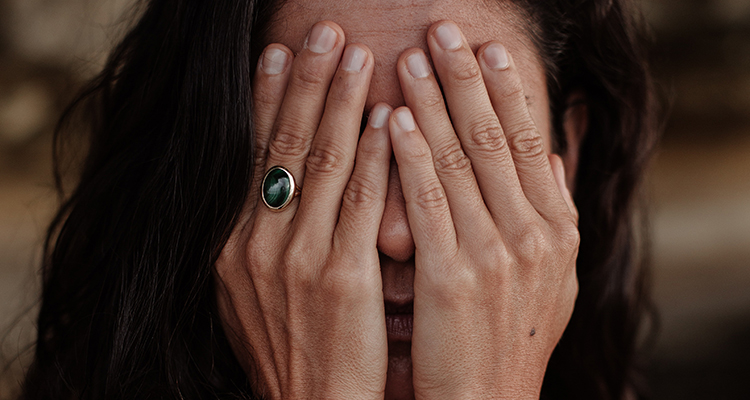
Sleep onset insomnia can stem from a variety of factors, such as lifestyle choices (i.e., a lack of exercise, too much alcohol, fatty, salty, or sugary foods, etc.) stress, and/or overindulging in caffeine (i.e., coffee, soda, black tea, chocolate, etc.) too close to bedtime.
Other possible causes of sleep onset insomnia include:
- Anxiety – According to researchers, people with anxiety experience onset sleep latency disruptions. When this occurs, it takes longer to fall asleep which intensifies your anxiety. Also, many anxious people ruminate over what is worrying them which can prevent them from drifting-off to sleep. Other anxious people become fixated over sleeping for a predetermined amount of time. When that doesn’t appear to be happening, it increases their anxiety, making it even harder to fall asleep.
- Sleep deprivation – Sleep deprivation can trigger hyperarousal and anxiety at bedtime, creating a cycle of sleep deprivation and anxiety. Some insomniacs may try to “calm” their racing mind and ease their nerves only to become so fixated on it that it prevents them from falling asleep.
- Health conditions – Physical and mental health conditions can trigger sleep onset insomnia. People, who have one or more of the following conditions have an increased risk of sleep onset insomnia – restless legs syndrome, periodic limb movement disorder, obstructive sleep apnea, congestive heart failure, and a circadian rhythm disorder.
- Chronic pain – Chronic conditions, such as lupus, arthritis, diabetes, fibromyalgia, cancer, peripheral neuropathy, and muscle, joint, or bone conditions may experience pain and have a hard time falling asleep. Chronic pain can also cause you to toss-and-turn until you fall asleep – if you fall asleep.
- Hormones – Hormones like cortisol, estrogen, progesterone, growth hormones, melatonin, and testosterone can negatively impact your sleep quality. Also, a hormonal imbalance or fluctuating hormones can cause you to wake-up frequently throughout the night.
- Poor sleep habits – Poor sleep habits can disrupt your body’s circadian rhythm (internal clock) preventing you from becoming sleepy when it’s time to go to sleep and causing you to become sleepy when you should be awake.
- Neurobehavioral conditions – Neurobehavioral conditions like ADHD (attention-deficit hyperactivity disorder) and ASD (autism spectrum disorder) can trigger hyperarousal, a key factor in sleep onset insomnia.
- Medication interactions and side-effects – Some medications can interact with other medications causing side-effects like sleep onset insomnia. Some of these medications are: (1) SSRI antidepressants, (2) ADHD stimulants, (3), nasal/oral decongestants, (4) corticosteroids (5) beta-blockers and ACE inhibitors, (6), statins, (7) theophylline, and (8) hormone replacement drugs.
Can Sleep Onset Insomnia Affect My Concentration and Productivity?
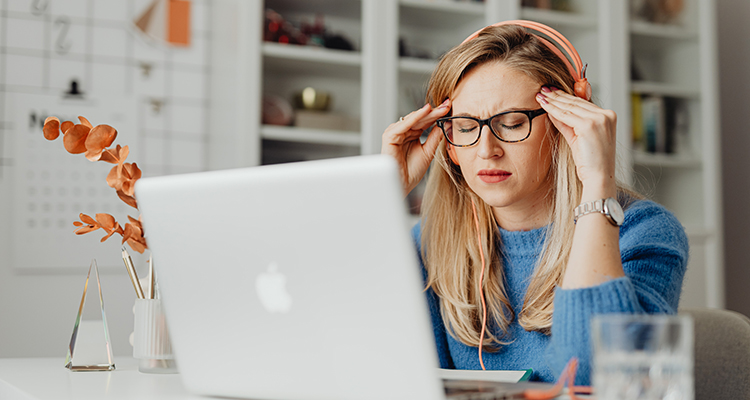
Yes, it can.
Researchers suggest that sleep onset insomnia can cause daytime grogginess, fatigue, and sleepiness, a lack of focus and concentration, and moodiness or irritability – all of which can reduce or negatively impact productivity.
What are the Symptoms of Sleep Onset Insomnia?
Sleep onset insomnia symptoms vary depending on the individual and the intensity and frequency of the insomnia. For example, some insomniacs may feel tired and sleepy during the day and have trouble focusing and completing tasks. These individuals may also be moody and irritable.
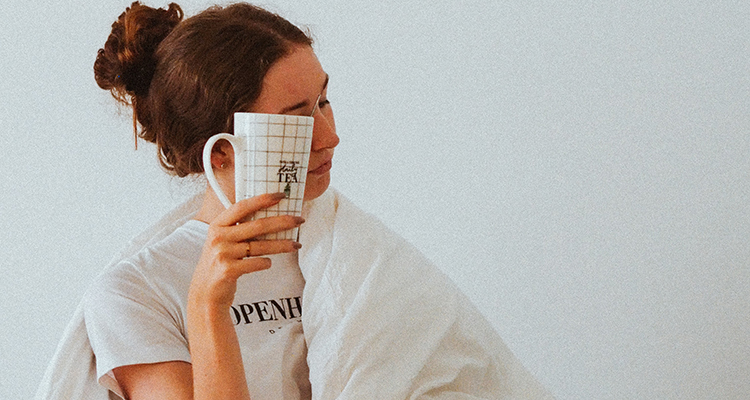
Other insomniacs may experience mild symptoms, such as daytime sleepiness that does not impact their daily functioning. In this case, you will experience sleep deprivation, however, your symptoms will most likely be temporary, disappearing once you get proper sleep the next night.
However, if you suffer from chronic sleep onset insomnia, you may experience crippling symptoms, such as constant headaches, aches and pains, suicidal ideation, mental confusion, hallucinations and delusions, severe mood swings, anger and aggression, poor libido or sexual dysfunction, depression, anxiety, clumsiness, etc.
How is Sleep Onset Insomnia Treated?
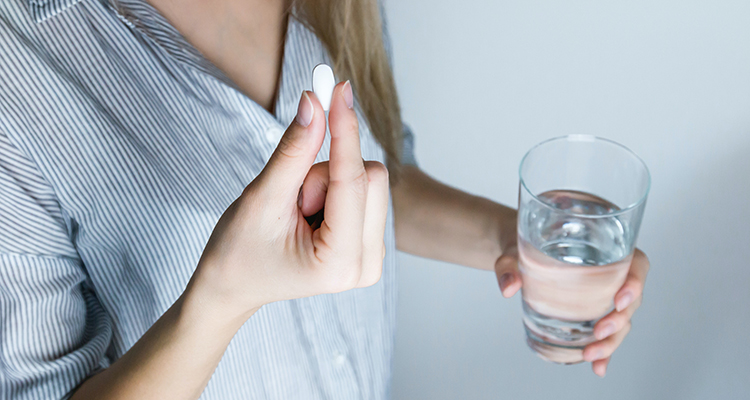
Sleep onset insomnia can be treated in a variety of ways, such as:
- Prescription sleeping pills like benzodiazepines (i.e., Alprazolam or Xanax) and non-benzodiazepines (i.e., Ambien or Lunesta).
- OTC sleep medications like Unisom or Benadryl
- Cognitive-behavioral therapy for insomnia (CBT-I) can help you identify and alter how you “see” bedtime and sleep, so that it has a positive connotation. CBT-I not only “quiet” your mind and body at night, it also “calms” it throughout the day, so you can peacefully and quickly fall asleep at night.But, even if CBT-I doesn’t help you fall asleep faster, when you do fall asleep, you are not tethered to your worries, racing thoughts, or emotional distress. Studies indicate that CBT-I is just as effective, if not more effective, than prescription sleeping pills (i.e., Lunesta, Ambien, etc.). Researchers also suggest that CBT-I is most effective when combined with other sleep aids. Moreover, CBT-I does not have the side-effects linked to prescription sleeping pills. This form of CBT tends to be self-administered through audio and visual methods. It can be applied in a counseling office or at home at your leisure.
- Natural sleep aids like herbal teas, online sleep programs, yoga, melatonin supplements, guided meditation, visualization, acupuncture, lifestyle changes, and/or a consistent bedtime routine
- Ebb insomnia therapy – Ebb insomnia therapy involves calming your brain activity by “cooling” your forehead. A recent study found that this technique can prevent or reduce frontal cortex metabolism elevations and reduce sleep latencies in people, who suffer from sleep onset insomnia.
- A consistent sleep/wake schedule (i.e. regular sleep and wake times)
- Turning-off all devices (i.e., computers, tablets, smartphones, and televisions) at least an hour before bed to eliminate any distractions that may keep you awake at night
- Regular exercise (at least several hours before bed) can help you fall asleep faster and stay asleep longer
- Avoiding caffeine, alcohol, and nicotine right before bed. Caffeine (soda, coffee, and tea), alcoholic beverages, and nicotine can stimulate your mind and body making it hard to “settle down” and fall asleep.
Can Alcohol Be Used as a Sleep Onset Insomnia Remedy?

Yes, it can, but you may not like the aftereffects.
Small-to-moderate amounts of alcohol can be used as a sleep aid, however, too much alcohol too frequently can lead to night wake-ups. It can also cause you to urinate or feel like you have to urinate several times throughout the night, which can repeatedly wake you from your slumber. And, there is always the risk of alcohol abuse or addiction and health complication, like cirrhosis of the liver or kidney damage.
So, you don’t want to “rely” on alcohol to help you sleep. However, on the flip side, OTC pain meds, like anti-inflammatory drugs, may help people, suffering from chronic pain get the relief they need to be able to fall and stay asleep at night. In this case, pain meds help reduce the pain-based hyperarousal commonly associated with insomnia.
Summary
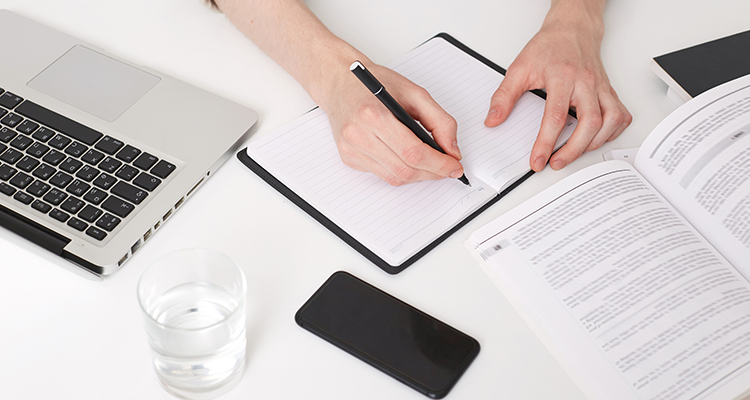
The truth is most people experience sleep onset insomnia at some time in their lives. It is normal and even expected. However, it shouldn’t be an “every night thing” because a lack of sleep will eventually “catch up with you” causing a host of additional problems, like physical ailments, a low immune system and frequent viruses and infections, high blood pressure, depression or anxiety, muscle and joint aches, gastrointestinal distress, confusion, daytime grogginess, mood swings, laziness, severe fatigue, debilitating headaches, etc.).
However, even though “sleeplessness” is frustrating, it doesn’t have to be a permanent situation. In other words, there are ways that you can combat insomnia, such as making important lifestyle changes, developing a bedtime routine, engage in online sleep program, taking a natural supplement, like melatonin, getting more exercise, adopting a healthier diet, etc. By being pro-active when it comes to sleep hygiene you increase the odds that you will get the sleep you need to be your best!
References
- Randazzo, A. (2018). What is behavioral insomnia in children? Types, prevalence, treatment. Alaska Sleep Clinic. Retrieved from https://www.alaskasleep.com/blog/what-is-behavioral-insomnia-in-children#:~:text=What%20is%20Behavioral%20insomnia%20in%20Children%20%28BIC%29%3F%20Behavioral,sleep%20leading%20to%20poor%20sleep%20quality%20and%20duration
- Park, H. S., Joo, E. Y, & Hong, S. B. (2009). Sleep onset insomnia. Journal of Korean Sleep Res Soc, 6(2), 74 :74-85. Retrieved from https://doi.org/10.13078/jksrs09015
- Krishnan, V. & Collop, N. A. (2006). Gender differences in sleep disorders. Current Opinions in Pulmonary Medicine, 12(6), 383-389. Retrieved from https://pubmed.ncbi.nlm.nih.gov/17053485/
- Ann-Marie. (2021). What causes insomnia? Somnus Therapy. Retrieved from https://somnustherapy.com/what-causes-insomnia/
- Penn Today. (2021). One in four Americans develops insomnia each year. Retrieved from https://penntoday.upenn.edu/news/one-four-americans-develops-insomnia-each-year
- American Psychiatric Assocation. (2021). What are sleep disorders? Retrieved from https://www.psychiatry.org/patients-families/sleep-disorders/what-are-sleep-disorders
- Santos-Longhurst, A. (2019). What are the different types of insomnia? Healthline. Retrieved from https://www.healthline.com/health/types-of-insomnia
- Keeler, J. (2021). The dangers of sleep deprivation. Somnus Therapy. Retrieved from https://somnustherapy.com/the-dangers-of-sleep-deprivation/
- Insomnia.net. (2021). Sleep onset insomnia. Retrieved from https://www.insomnia.net/insomnia-faqs/sleep-onset/
- Miller, C. B., Robertson, D. J., Johnson, K. A., et al. (2021). Tired and lack focus? Insomnia increases distractibility. Journal of Health Psychology, 26(6), 795-804. Retrieved from https://journals.sagepub.com/doi/abs/10.1177/1359105319842927?journalCode=hpqa
- Hamoen, A. B., Redlich, E. M., & de Weerd, A. W. (2014). Effectiveness of cognitive behavioral therapy for insomnia: Influence of slight-to-moderate depressive symptom severity and worrying. Depression and Anxiety, 31(8), 662-668. Retrieved from https://pubmed.ncbi.nlm.nih.gov/24706608/
- Davidson, J. R., Dawson, S., & Krsmanovic, A. (2019). Effectiveness of group cognitive behavioral therapy for insomnia (CBT-I) in a primary care-setting. Behavioral Sleep Medicine, 17(2), 191-201. Retrieved from https://pubmed.ncbi.nlm.nih.gov/28463015/
- Roy, S. (2017). 7 new options for sleep-onset insomnia. Sleep Review. Retrieved from https://www.sleepreviewmag.com/sleep-disorders/insomnia/onset-insomnia/new-options-sleep-onset-insomnia/
- Somnus Therapy. (2021). Sleep therapy at home. Retrieved from https://somnustherapy.com/#Faqs-sec|1
- Papadimitriou, G. N. & Linkowski, P. (2005). Sleep disturbance in anxiety disorders. Int Rev Psychiatry, 17(4), 229-36. Retrieved from https://pubmed.ncbi.nlm.nih.gov/16194794/
- Peters, B. (2020). Sleep latency and its impact on your sleep. Very Well Health. Retrieved from https://www.verywellhealth.com/sleep-latency-3014920


